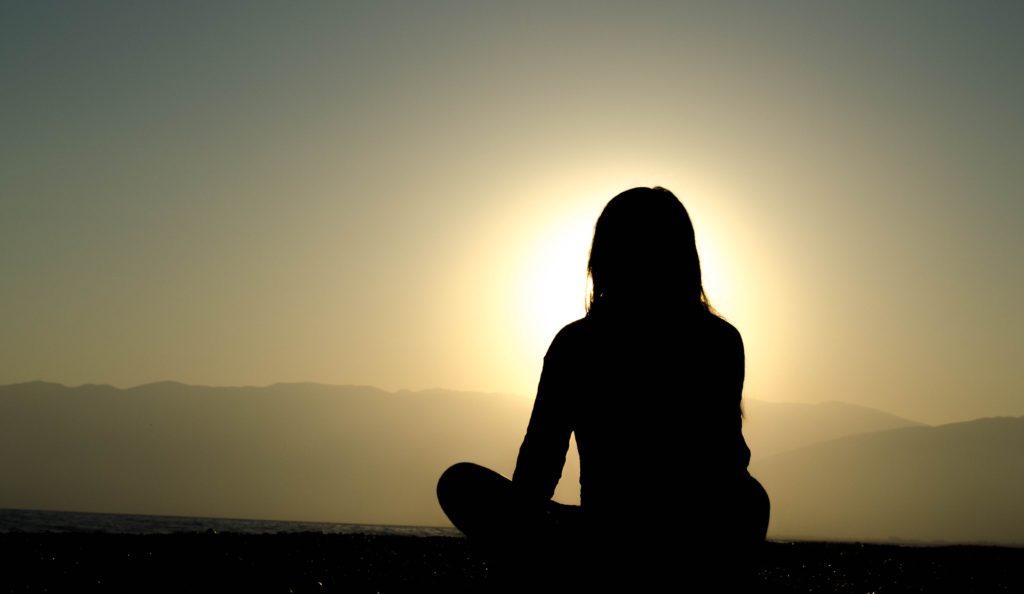
By Dr Rachel Lilley, Senior Fellow at Birmingham Leadership Institute, University of Birmingham
I imagine I am not alone in my resolve that 2023 needs to be less stressful than 2022. Life is too short to be constantly juggling priorities, worried and tired…
Wouldn’t it be great to no longer feel constantly overwhelmed by the never-ending demands of life, work, family and making ends meet? Maybe mindfulness could help?
As the new year begins, our social media feeds are already filling with ads promising calmness, relaxation, and a way out of the chaos.
As an academic who has studied, practiced, and taught meditation for over 30 years, you might expect me to applaud and encourage promises of app inspired peace through short breathing practices. On the contrary, because I have studied, practiced, and taught both meditation and yoga for a long time, I believe it is not the most effective approach, and here’s my three reasons why:
- It’s too hard.
Developing a new habit takes time and effort, which most of us don’t have. If you are already stressed, tired and overwhelmed with little extra time on your hands, learning mindfulness can add to your load, not reduce it. It is hard to be still, breathe deeply and pay attention when you are used to doing the opposite all day. It will be one more thing on the list that you will not get to, one more ‘didn’t quite get there’ in your day.
I have taught many busy people mindfulness, and this is what they say; they start off believing carving out 10 minutes of their day is eminently possible, it certainly seems reasonable, only to realise just how impossible it is.
- There are often other (easier) places to start.
The world is now a place where our nervous systems are constantly in a ‘sympathetic mode’ – permanently on alert, ready to act, fight, flee, or freeze.
Technology demands our attention 24/7, requiring us to respond, consume, relate or all three together. Attention is money and more people, businesses, products, and services vie for our focus every waking moment.
Sitting doing nothing but watching your breath, or trying to focus on your body feels intolerable because it is so unfamiliar and not a social norm. It is like going straight from nothing to week 7 of Couch to 5k. It hurts, and you don’t want to do it again!
Instead start slowly and find ways to begin being more relaxed and less stimulated. Support your nervous system by eating foods that avoid blood sugar spikes and mood swings, get morning daylight and sleep better, spend time with friends, and get your intimacy needs met. Gentle exercise and a massage are also a wonderful and simple way to ease tension. Begin with these, and move on to include relaxation practices such as yoga nidra (a deep, very effective relaxation practice) or breathing exercises, then it will be much easier to move on to mindfulness.
- The issue is systemic, not individual
We have created a stressogenic world.
It didn’t happen by design, or because we aren’t good enough and don’t do enough meditation. It happened over time, with multiple factors coming together: food systems, work environments, technology, the economy, and lifestyle changes, all creating a way of life which is overstimulating, over-demanding and overwhelming. We are not sleeping enough; eating foods that create mood and energy swings; grinding our teeth; and suffering back pain. Stress is not something we create as individuals, it is an emergent property of the modern world, and individuals watching their breath for 15 minutes a day is like swimming against a fast current – you don’t get very far.
Since stress is systemic, mindfulness needs to be orientated towards group practices and systems change.
If we start to bring pauses, relaxation and self and group reflection into our meetings, work relationships and decision making, we can start to fundamentally change the way we relate and the decisions we make. Our team starts every meeting with a mindfulness practice, so everyone relaxes and focuses helping us better engage with each other and the decisions we need to make. This improves how we think as a group, makes us better at dealing with difference and conflict and supports more creativity and open mindedness.
Mindfulness and reflection are also much easier to do in groups, we respond to each other as we relax and focus, it becomes a social norm. Leaders I have worked with have been astonished by how effectively teams can deal with conflict and difficulty when using these techniques. How they help build safe and creative working environments, improve collaboration and support systemic change. The practices can also be used to make the kinds of difficult decisions that ultimately challenge and start to shift the stressogenic environment we are in, so that we don’t feel stressed in the first place.
Individual mindfulness will never achieve the shift that group mindfulness can. If we really want 2023 to be different, our priority needs to be on systems focused mindfulness and not on us, as individuals, struggling to be calm in the never-ending, overdemanding chaos.
-
Dr Rachel Lilley is a Senior Fellow at Birmingham Leadership Institute. She is an expert on leadership, behaviour change and climate change, and has written respected articles on this topic. Find out more about Dr Rachel Lilley on her academic profile, or on her website
- Back to Social Sciences Birmingham
The views and opinions expressed in this article are those of the author and do not necessarily reflect the official policy or position of the University of Birmingham.
